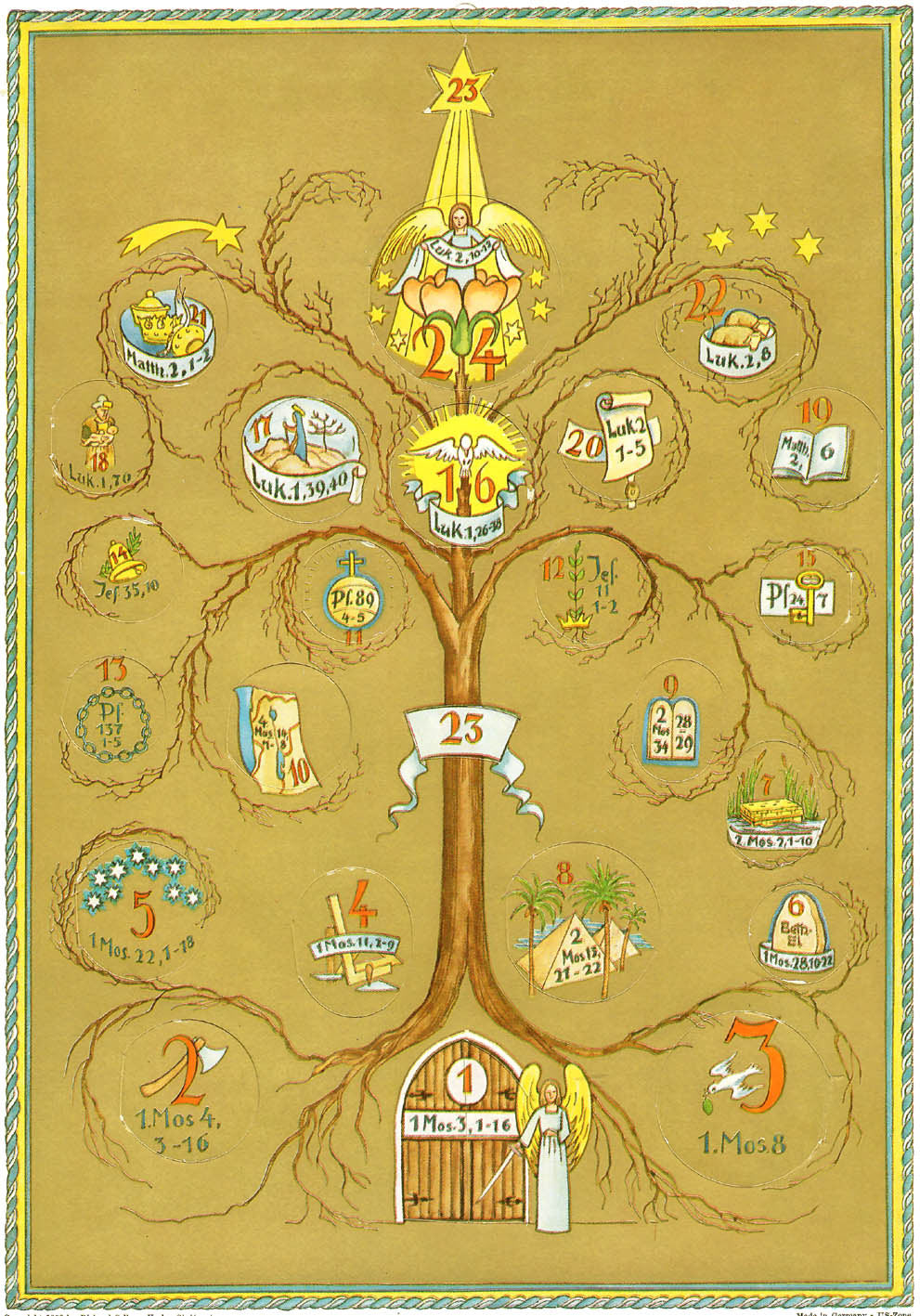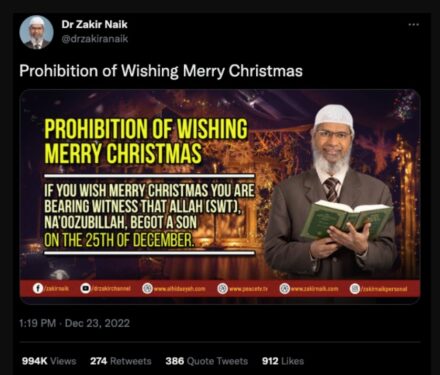 At the beginning of the 1920s, the Sankt Johannis printers in Baden Germany printed an advent calendar whose opened window showed Bible verses instead of pictures. A few thoughts on the verses every day.
At the beginning of the 1920s, the Sankt Johannis printers in Baden Germany printed an advent calendar whose opened window showed Bible verses instead of pictures. A few thoughts on the verses every day.
A messiah in swaddling clothes and a manger, Luke 2:10-18
Twenty-fourth window of the Biblical advent calendar
 The angel announced to the shepherds: “For unto you is born this day in the city of David a Saviour, who is Christ the Lord. And this will be a sign for you: you will find a baby wrapped in swaddling clothes and lying in a manger” Luke 2:11-12.
The angel announced to the shepherds: “For unto you is born this day in the city of David a Saviour, who is Christ the Lord. And this will be a sign for you: you will find a baby wrapped in swaddling clothes and lying in a manger” Luke 2:11-12.
Someone is reborn in Judaism when he converts to Judaism, comes in the religious age with the bar mitzvah, marries, is appointed as a rabbi by laying hands on him, or is installed as a king. The detail of swaddling clothes shows that the Messiah is really a baby and not a call to service.
The manger told the shepherds that the child was born in Bethlehem, in a simple house like the one they knew. The shepherds would probably have hesitated to visit a prospective king in a majestic home.
However, if they would have arrived and find a shabby stable with a frightened young mother and a distraught Joseph, they would surely have taken them to their families.
It is not clear from the biblical text where Mary and Joseph lived in Bethlehem. It’s only written (Luke 2:6): “While they were there (not arrived), the time came for her to give birth. And she gave birth to her firstborn son and wrapped him in swaddling clothes and laid him in a manger, because there was no place for them in the “room”.“
The Greek word, often translated as “inn”, occurs three times in the New Testament. We see it for the first time in the above text, the other two times it describes the room in which Jesus held the Lord’s Supper (Mark 14.14 / Luke 22.11). It is the place that is only for the people. In the parable of the Good Samaritan, Luke uses the Greek word for an inn (Luke 10:34).
According to the Bible, Mary and Joseph could have lived in a simple Jewish house. In addition, it was customary to accommodate travellers in private houses, especially if they belonged to the relatives. According to Matthew, Mary and Joseph lived in a house in Bethlehem (Matthew 2:11).
In the first century, the manger for the small animals were in simple houses in the lower rooms. Obviously, the house had been overcrowded with too many people due the census and the space in the bed-living-room was too crowded for a birth.
Jesus comes and takes part in life as it really is. And he saves people from their hopelessness and gives peace on earth to people who turn to him (Luke 2:14).
Continue reading Advent →
 He also clarified that there was no religious text that prohibited such greetings, and when a Muslim greeted another non-Muslim on their religious celebration, this did not mean he/she is acknowledging another faith.
He also clarified that there was no religious text that prohibited such greetings, and when a Muslim greeted another non-Muslim on their religious celebration, this did not mean he/she is acknowledging another faith. To re-cap, Zakir had on last Friday (Dec 23,2023) Zakir posted a photo caption on his Twitter page which is meant to insinuate that “if a Muslim wishes Merry Christmas, then he/she is admitting that God/Allah is the biological father to Jesus/Isa”.
To re-cap, Zakir had on last Friday (Dec 23,2023) Zakir posted a photo caption on his Twitter page which is meant to insinuate that “if a Muslim wishes Merry Christmas, then he/she is admitting that God/Allah is the biological father to Jesus/Isa”. At the beginning of the 1920s, the Sankt Johannis printers in Baden Germany printed an advent calendar whose opened window showed Bible verses instead of pictures. A few thoughts on the verses every day.
At the beginning of the 1920s, the Sankt Johannis printers in Baden Germany printed an advent calendar whose opened window showed Bible verses instead of pictures. A few thoughts on the verses every day. The angel announced to the shepherds: “For unto you is born this day in the city of David a Saviour, who is Christ the Lord. And this will be a sign for you: you will find a baby wrapped in swaddling clothes and lying in a manger”
The angel announced to the shepherds: “For unto you is born this day in the city of David a Saviour, who is Christ the Lord. And this will be a sign for you: you will find a baby wrapped in swaddling clothes and lying in a manger”